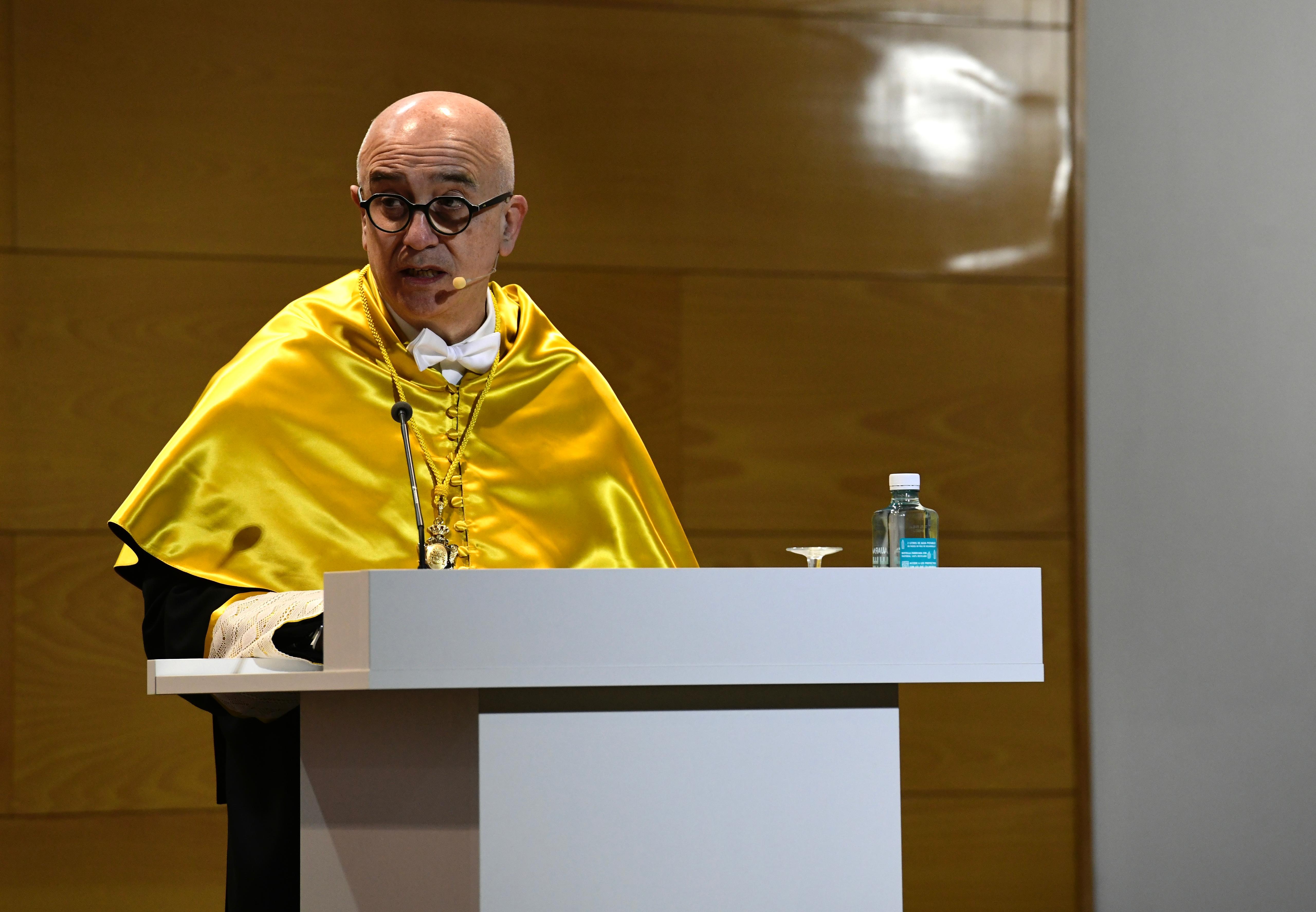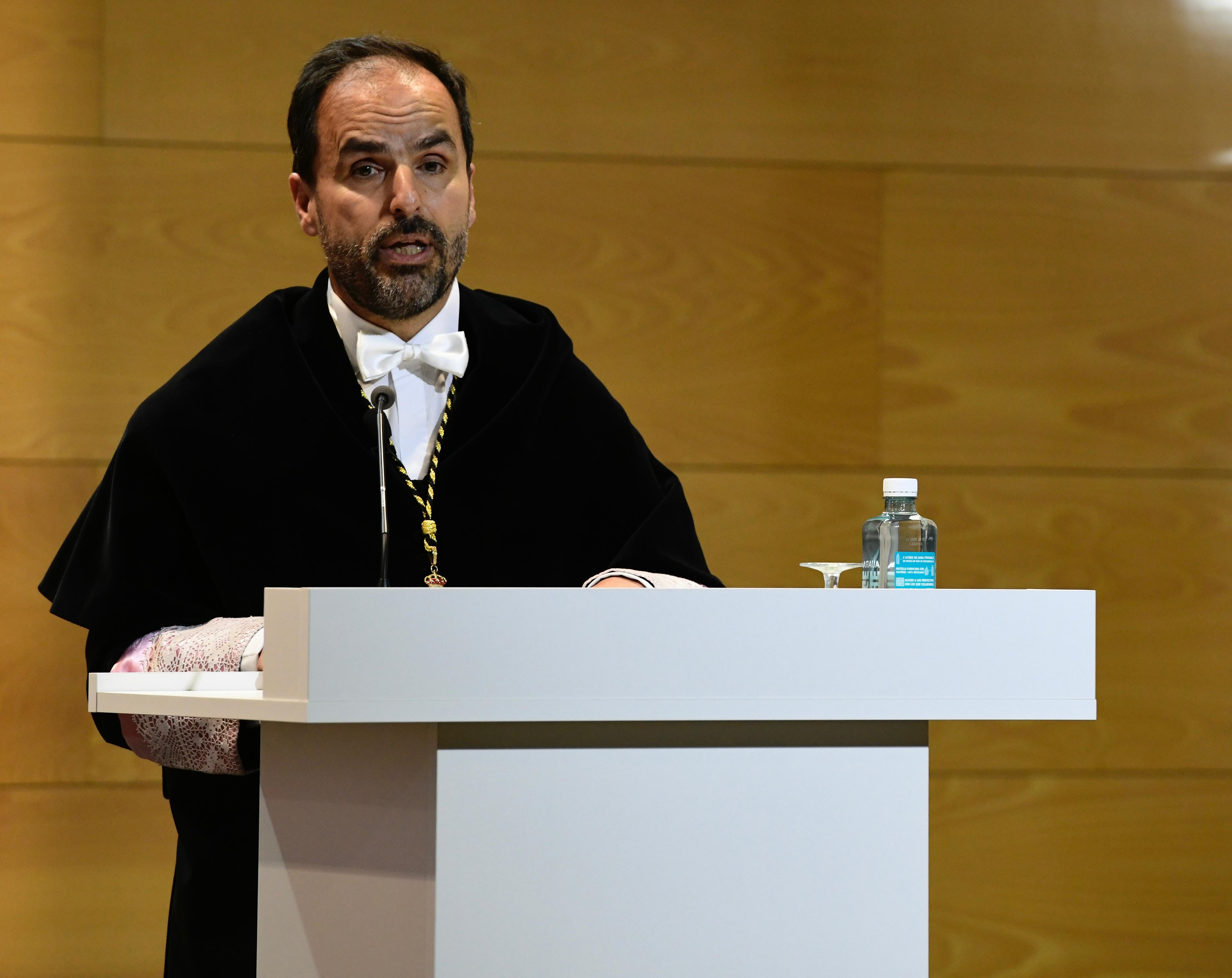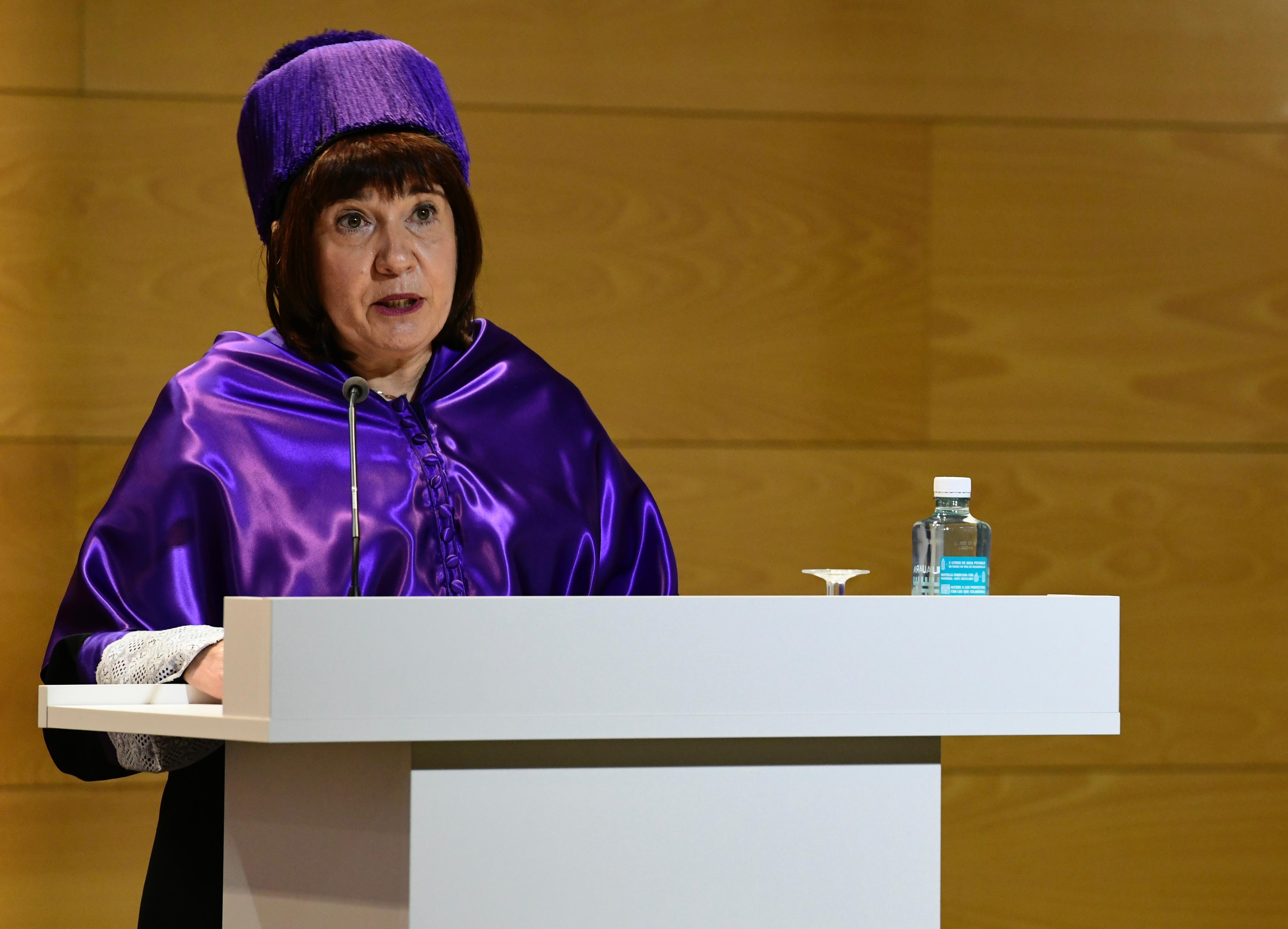Raul Garcia Hemonnet
Before a packed assembly hall of the Faculty of Health Sciences, the rector of the Rey Juan Carlos University, Javier Ramos, has made official the investiture as Doctor Honoris Causa to the doctor, endocrinologist and professor at Cambridge of Metabolism and Molecular Nutrition, Antonio Vidal Puig.
Constant innovation and stability of research
In his investiture speech as Doctor Honoris Causa, Antonio Vidal Puig took the opportunity to review in detail both his life and professional career, deeply intertwined.

In this journey, the new member of the URJC faculty has recounted a series of events that have revealed his commitment to constant innovation, and the need to find answers, greatly influenced by his great interest in Philosophy.
Thus, he spoke about his academic beginnings in Valencia, accelerated by an adverse family situation, and his specialization in endocrinology in Granada, a university where he earned his doctorate and “was a starting point in a journey full of unexpected adventures,” said Vidal Puig.
After there, meeting an eminence in the study of diabetes such as Dr. Leo Krall took him to Boston, where he experienced the economic instability of science, something that made both Antonio and his wife, Merche, establish as a priority the search for a certain stability as researchers. A total of 7 years in the United States led him to be a researcher at the Beth Israel Hospital, where he identified “the scientific problem to which I was going to dedicate my career, obesity and its complications,” said the new doctor Honoris Causa. .
After Harvard, came Cambridge and the possibility that both Vidal Puig and his wife could develop their respective professional careers. In England he presents innovative methodologies for the study of metabolism, with transgenic mice. In Cambridge, in 2000, his son Antonio was born. It is also there where he begins teaching and launches the TVP laboratory, in which both Vidal Puig and the rest of the researchers explore the molecular mechanisms involved in the control of energy expenditure, fat deposition and the processes that determine the use of nutrients towards oxidation to generate energy or storage in the form of fat, fundamental processes to understand the development of obesity.
The laboratory today has extensions in the Chinese city of Nanjing (Cambridge University Nanjing Center for technology and Innovation). In Valencia, Vidal Puig is a principal researcher at the Príncipe Felipe Research Center, his laboratory, and he also has important ties with the National University of Singapore.
At a time of stability at the TVP Laboratory, Vidal Puig decided to complement his career by studying an MBA in Cambridge where he was “enriched by a whole environment of entrepreneurs and economics and business people,” explains the honoree.
Antonio Vidal Puig wanted to highlight the “freedom to be more creative and take more risks” when getting older, quoting his friend and mentor Leo Krall, “the advantage of getting older is that you have no future and you don't have to worry about it.” , has also highlighted the generosity of older people towards those who come from behind.
The new doctor Honoris Causa, at the end of his speech, dedicated some beautiful words to both his younger brother, Santiago, and his wife, Merche.
Javier Ramos: “excellence defines the career of Antonio Vidal Puig”
The rector of the URJC, in his speech during the investiture ceremony of the new Honoris Causa doctor, pointed out that “excellence can summarize the scientific career of Antonio Vidal Puig.” That term serves to bring together his status as a leading scientist in his field and the invaluable legacy of a doctor “who perfectly fulfills the Hippocratic Oath,” the rector indicated.

Doctor Honoris Causa, in the words of Javier Ramos, “has had as a constant commitment that the fruits of research contribute to the improvement of the well-being of his fellow human beings.”
In this sense, Javier Ramos has appealed to the social responsibility of science, “only with a curious and open outlook can the task be successful: putting knowledge at the service of society” and he added, “the work of researchers and the training you develop have an influence that goes beyond our time and our environment.” The rector recalled that the first function of the university is the “generation, transmission and application of knowledge. The extension of science through teaching and research, putting scientific evidence ahead of dogmas and pseudosciences. This commitment has a special place at the Rey Juan Carlos University.” Javier Ramos added that "we want to be the widest and most reliable channel for knowledge to flow and for knowledge to be the heritage of all and not the privilege of a few."
For her part, Professor Gema Medina Gómez, professor and researcher of the Department of Basic Sciences, took advantage of her Laudatio to review the career of Antonio Vidal Puig and highlight his relationship with the URJC "of which he has been an honorary collaborator and has served as an advisor in several research projects,” said what was her first postdoctoral researcher in all of Europe, in 2000.

The investiture ceremony of Antonio Vidal Puig as an Honoris Causa doctor was attended by the president of the Education Commission of the Community of Madrid, Mirina Cortés Ortega, and the Counselor for Educational Affairs of the Chinese Embassy in Spain, Lu Yang, and other authorities. local and academic.
The event also featured a performance by a string trio with musicians from the URJC Orchestra who performed the traditional 'Veni Creator' and 'Laudeamus Igitur'.



